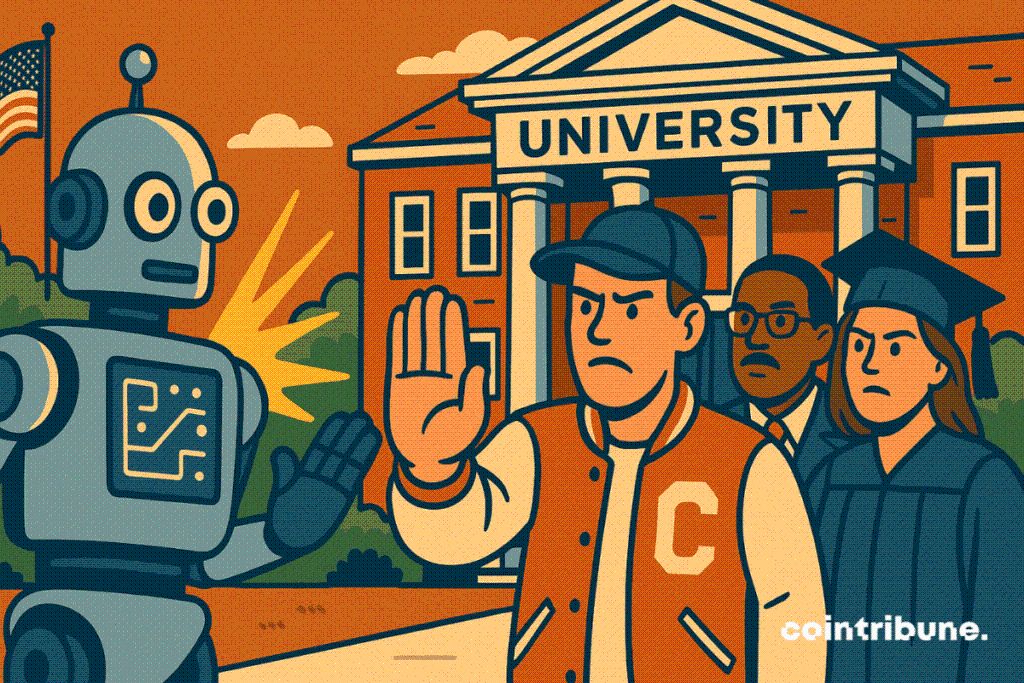Why is AI so concerning on American campuses?
While American universities are investing heavily in artificial intelligence, from the University of Georgia to the University of Michigan, a national survey reveals a surprising reality. American citizens, far from embracing this revolution, show growing distrust towards the integration of AI on campuses.

In Brief
- More than half of Americans consider AI negative for student learning.
- 46% think that its use by teachers weakens academic support.
- Even Generation Z, familiar with AI, remains skeptical.
- 40% believe AI devalues university degrees.
AI divides opinion in American universities
Since 2023, American universities have been multiplying initiatives around AI. The University of Georgia led the way with Microsoft Copilot generalized across the entire campus and an award recognizing innovation in AI pedagogy.
Michigan followed by creating its own tools, while Arizona State partnered directly with OpenAI .
Yet, despite these advances, public opinion remains cautious. According to the Varying Degrees 2024 study , 53% of Americans believe that the use of AI by students harms their learning.
Only 27% consider it could have a positive effect, and nearly one-fifth see no significant impact. Among teachers, the finding is similar: 46% of respondents believe AI weakens the quality of support offered to students.
This skepticism is not surprising. Indeed, some teachers continue to penalize, sometimes wrongly, works suspected to be AI-generated.
At the same time, some students tend to rely excessively on tools like ChatGPT or Grammarly, which blurs the line between reasoned use and technological dependency.
Generation Z, more skeptical than expected
One might think that Generation Z, born with smartphones and social networks, would spontaneously adopt artificial intelligence. However, the numbers tell a different story. Indeed, only 19% of 17–18-year-olds believe AI improves university learning, eight points less than the national average.
Even more striking, 54% judge its use negative by teachers, a skepticism stronger than among their elders.
Furthermore, this caution reflects a deeper concern: the value of degrees. Certainly, 73% of Americans still believe higher education offers a good return on investment.
However, 40% fear AI devalues degrees, especially since many “white collar” jobs, financial analysts, consultants or assistants, could be directly challenged by algorithms.
Behind this statistic lies a fundamental question: does AI threaten the human dimension of education? A recent study conducted by Northwestern University, in collaboration with the Hertie Institute for AI applied to health, reinforces these doubts.
In 2024, nearly 13.5% of biomedical publications already bore the marks of ChatGPT or similar tools, raising doubts about transparency and academic integrity.
Artificial intelligence attracts as much as it worries. On American campuses, its implementation is advancing rapidly, but trust is slow to follow. The challenge is not limited to technology: it touches on culture, politics, and the very credibility of knowledge. Will higher education be able to transform AI into a pedagogical ally, or will it remain a perceived threat to the academic future?